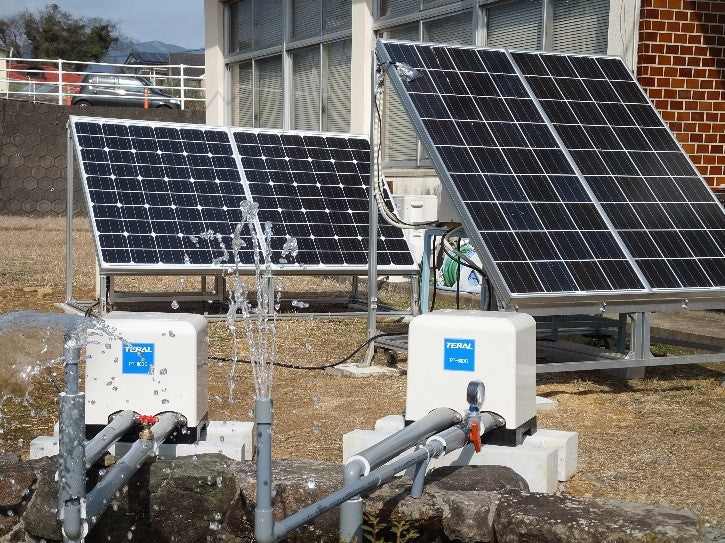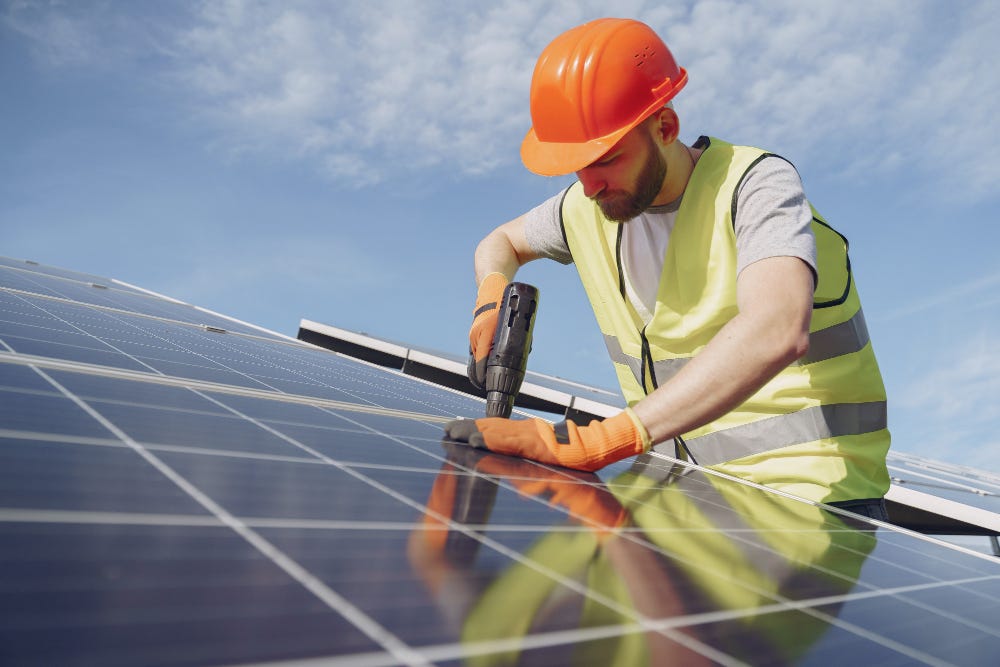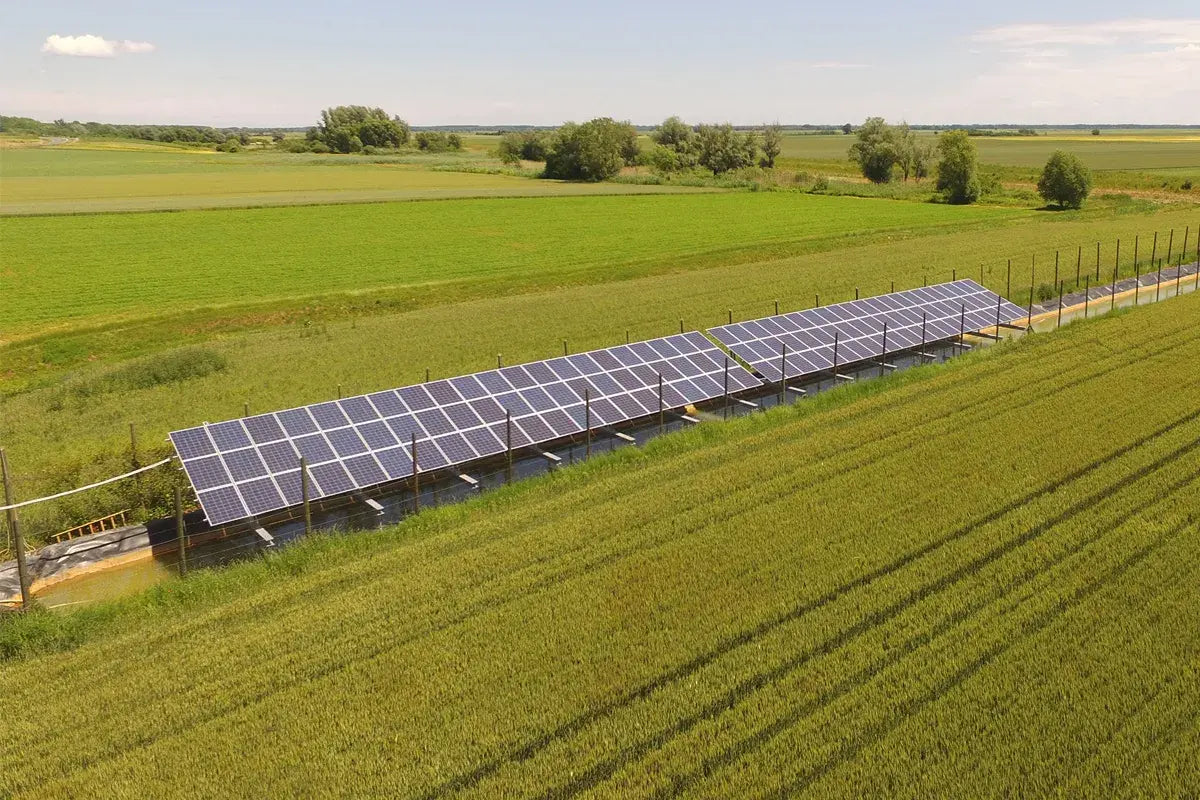Solar-powered pump systems are an increasingly popular choice for those seeking a more efficient and sustainable way to pump water, waste, and more.
This comprehensive guide provides practical advice and technical insights to help you optimise your solar pump system's efficiency and longevity, promoting sustainable water management and helping you achieve significant cost savings.
How to Optimise and Increase Solar Panel Efficiency
Solar panels serve as the powerhouse of your solar pump system, converting sunlight into electrical energy. To enhance their efficiency, start with optimal placement. Position panels where they will receive maximum sunlight exposure throughout the day - this varies for by geographical location.
Another crucial factor is minimising shading. Trim nearby trees and foliage that cast shadows on panels during peak sunlight hours. Even partial shading can significantly reduce energy output, so ensuring panels remain unobstructed is vital for optimal performance. For more tips on how to install a solar pump system (and what to avoid), check out our helpful article.
Invest in Solar Inverters and Understanding Types
Solar inverters play a critical role in your system by converting DC power generated by solar panels into AC power suitable for your pump and other electrical devices. Understanding the types available can help you choose the best option for your needs.
String inverters are cost-effective and connect multiple solar panels in series to a single inverter. However, they are susceptible to performance loss if one panel is shaded or underperforming. Microinverters, on the other hand, are installed on each individual solar panel. This setup maximises the efficiency of each panel independently, making them ideal for systems prone to shading issues.
For systems requiring energy storage solutions, battery-based inverters are essential. They allow you to store excess energy generated during the day for use during periods of low sunlight or at night, ensuring continuous operation and reducing reliance on the grid.
Monitoring Energy Usage
Monitoring your system's energy usage provides valuable insights into performance and efficiency. Utilise monitoring software to track energy production, consumption patterns, and overall system efficiency. Real-time data analysis helps identify trends and allows for adjustments to optimise pump scheduling and energy usage.
LORENTZ pump systems constantly record and store historical data, making it easy to optimise your solar pump’s efficiency. The LORENTZ CONNECTED smartphone app allows you to easily access this information and configure your system from afar, making remote management of your pump system a snap.
Adapting Solar Energy Efficient Habits
Implementing energy-efficient practices can further enhance your system's performance and reduce operational costs. Consider scheduling pump operations during peak sunlight hours to maximise solar energy utilisation. Staggering heavy power consumption, such as running multiple appliances simultaneously, helps avoid overloading the system and ensures consistent operation.
Integrating energy storage solutions, such as batteries, allows you to store surplus energy for use during periods of low sunlight or at night. This approach optimises energy use and enhances overall system efficiency.
Regular Maintenance of Solar Panel Systems
Regular maintenance is crucial for ensuring the longevity and efficiency of your solar pump system. Look out for debris, damage, or signs of wear during these checks. Keep your panels clean by gently wiping them with a soft cloth and using a mild detergent when necessary. This routine upkeep ensures your solar system operates at its best, maximising energy output and longevity.
Check electrical connections regularly to ensure they are secure and free of corrosion, as loose connections can lead to energy loss and system inefficiencies. Schedule professional servicing annually to perform comprehensive system checks, preventive maintenance, and necessary repairs.
LORENTZ’ German-engineered pump systems are designed to thrive in harsh and remote locations with minimal service requirements and require maintenance calls, saving you time and money on repairs, maintenance, and replacement costs.
Ready to maximise the efficiency and longevity of your solar pump system?
Implement these practical tips today to enhance your system's performance, reduce maintenance costs, and promote sustainable water management on your farm. For more personalised advice or to explore our range of high-quality solar pumping solutions, contact the team LORENTZ. Our expert team is here to support you in achieving optimal efficiency and reliability for your agricultural water supply needs. Let's harness the power of the sun together for a more sustainable future.
FAQs: Maintaining Your Solar Pump System
How do you maintain a solar water pump? Regular maintenance includes cleaning solar panels, checking electrical connections, monitoring energy usage, and scheduling professional servicing annually.
How often should I inspect my solar pump system? Inspect your solar pump system monthly for debris, damage, or shading issues. Schedule professional inspections annually to ensure optimal performance.
How do I clean the solar panels to maintain efficiency? Clean panels using a soft cloth and mild detergent. Avoid abrasive materials that could scratch the surface and reduce efficiency.
What should I do if I notice a decrease in the system's performance? Check for shading issues, debris on panels, or system faults. Monitor energy production and consult with a professional if issues persist.
Are there any preventive measures I can take to avoid common issues? Implement regular cleaning and maintenance schedules, monitor system performance, and invest in quality components to ensure long-term efficiency and reliability.







